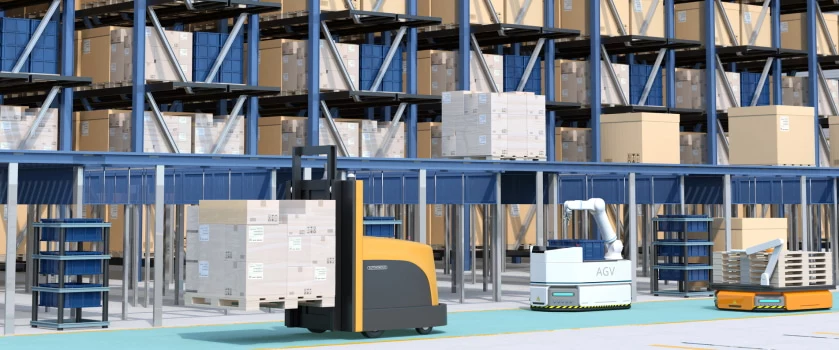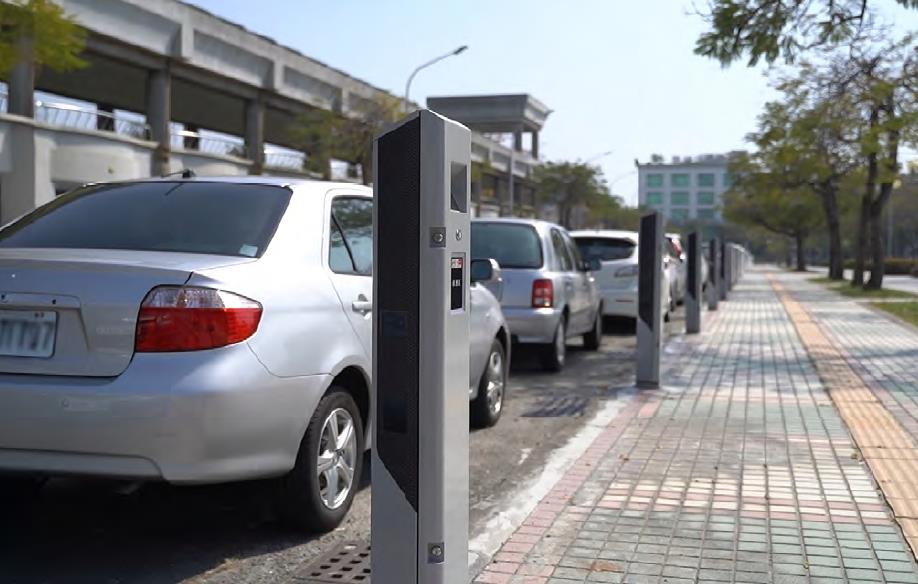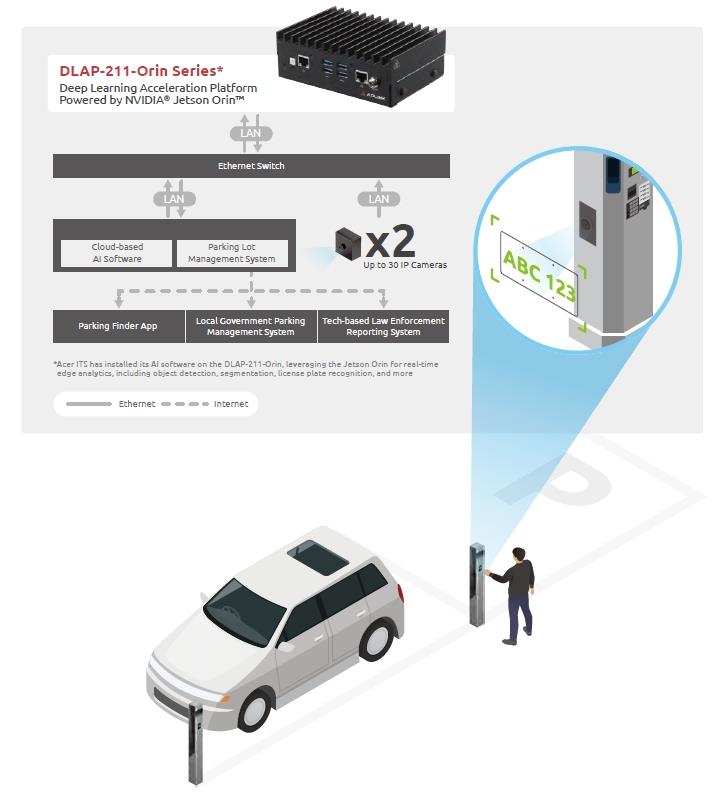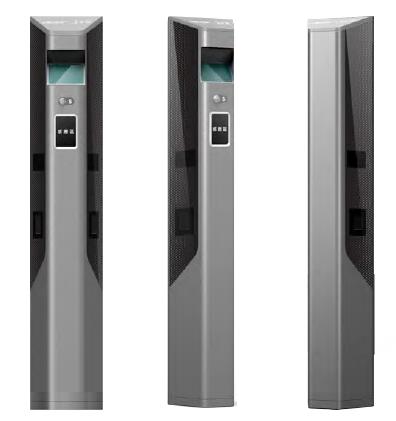English
繁體中文
简体中文
한국어
日本語
-
Products
Computer-On-Module GPU Solutions Rugged Computing Edge Computing Platforms - Industrial PCs, Motherboards, & SBCs
- Embedded Computers & IoT Gateways
- Edge AI Platforms
- AI Smart Cameras
- Robotic Controllers
- Industrial Solid State Drives
- Industrial Touch Monitors
- Open Frame Panel PCs
- All-in-One Panel PCs
- Rugged Panel PCs
- Digital Signage Players
Networking & Servers - AI GPU Servers
- Industrial, Telecom Servers
- Network Security Appliances
- Private 5G Network Solution-MicroRAN
- Machine Vision
- Motion Control & I/O
- EtherCAT Motion Control Solutions
- HMI Panel PCs
- Data Acquisition
- GPIB & Digitizers
- PXI Platforms & Modules
- Autonomous Mobile Robots
- Industrial Gateway Solutions
Healthcare Computing & Monitors Gaming Platforms & Monitors Software -
Industries
Automotive

With cutting-edge autonomous driving computing platforms that pave the way for safer and more productive travel, ADLINK's solutions provide you powerful computing capabilities to fulfill autonomous and advanced driver assistance system (ADAS) technologies as well as rugged design for automotive use.
Learn MoreDefence & Aviation
In the defense aviation arena, it is of paramount importance to accurately observe the environment and make fast and reliable decisions, leading to timely action. ADLINK rugged systems and Data Distribution Service (DDS) are a key part of a larger data-focused infrastructure that collects, stores, analyzes, and transfers information from the field to the decision-maker.
Learn MoreHealthcare

ADLINK is addressing the needs of healthcare digitization with a focus on medical visualization devices and medically-certificated solutions. By leveraging PENTA's design and manufacturing capabilities in the medical field, ADLINK's healthcare solutions facilitate digital applications in diverse healthcare environments.
Learn MoreGaming

ADLINK Gaming provides global gaming machine manufacturers comprehensive solutions through our hardware, software, and display offerings. Uniquely combining computer expertise with a cutting-edge software stack and a deep understanding of the gaming industry’s requirements and regulations, we back up our customers so they can focus on creating the world’s best games.
Learn MoreIndustrial Automation

Industrial automation is a crucial facet of global manufacturing industries. ADLINK's flexible selection of system-, platform-, and product-based solutions overcomes the extreme environmental rigors of manufacturing deployments and delivers connected, fault-free performance on the factory floor.
Learn MoreRetail & Logistics

Maintaining superior customer service and on-time delivery while simultaneously reducing retail shrinkage and increasing employee productivity can be very difficult to achieve when shipping high volumes of packages each day. ADLINK's solutions make customers' packages and pallets intelligent, efficiently connecting their entire supply chain and improving warehouse logistics.
Learn MoreSemiconductor Solution

Everything is essentially driven by chips, and to suit the needs of diverse applications, a perfect wafer manufacturing process is necessary to ensure everything from quality to efficiency and productivity.
Learn MoreSmart City

A smart city is an urban area that implements Internet of Things sensors to collect data from a variety of sources and uses the insights gained from that data to manage assets, resources, and services efficiently. ADLINK's data-to-decision solutions incorporate video analytics, reliable design, deliver stability and reliability, and are an ideal choice to realize an efficient smart city.
Learn MoreTest & Measurement

Test and measurement focuses on dedicated equipment for analysis, validation, and verification of electronic device measurement and end products. ADLINK continues to expand its T&M offerings with innovative products, meeting the unique needs of high-speed and high-bandwidth applications.
Learn MoreRailway

Our Rugged by Design CompactPCI/CompactPCI Serial, computer-on-modules, industrial-grade system and panel computer product portfolio has been specifically selected for onboard ATO/DMI and wayside CTC/RBC/TSRS railway solutions. ADLINK’s exceptional flexibility in design and manufacturing has been utilized by top rail signaling providers worldwide.
Learn MoreRobotics

Autonomous Mobile Robots (AMRs) are able to carry out their jobs with zero to minimal oversight by human operators. Facilities such as schools, hospitals, shopping malls, and factories in particular can use a swarm of AMRs to improve operational efficiency and quality of life.
Learn More -
Strategic Partners
AMD-based Solutions
Empower your edge computing with ADLINK, a leading company enabling edge solutions. Leverage AMD's high performance, secure integration, and power efficiency advantages for a wide range of edge, networking, and edge systems with x86 core architecture. Experience superior processing and graphics performance with ADLINK's utilization of AMD Ryzen™ Embedded series, powered by Radeon™ RX, perfect for industrial, medical, automation and gaming applications.
Learn MoreAmpere-based Solutions
Experience the future of edge computing with our comprehensive offering, which includes the Ampere Altra-based COM-HPC module, a developer platform and/or dev kit. Dive in now to unleash superior performance, energy efficiency, and optimized TCO in applications including but not limited to industrial automation, autonomous vehicles, transportation, healthcare, video surveillance, and energy management.
Learn MoreArm-based Solutions
Based on Arm architecture, ADLINK also collaborates with Ampere, NXP, MediaTek, Qualcomm, and Rockchip in module computing development and value-added solutions across varied industries, including smart manufacturing, autonomous driving, robotics, AMR, drone, transportation, logistics, retail, infotainment, healthcare, security, and more.
With plug-and-play tools, development kits, and all-encompassing systems, ADLINK and Arm empower developers to accelerate and realize their innovations.
Learn MoreIntel-based Solutions
ADLINK is a Titanium member in Intel® Partner Alliance. From modular computing to system-ready use cases, ADLINK works closely with Intel to provide scalable, interoperable solutions that accelerate your intelligent device deployment with end-to-end analytics.
Utilizing Intel-based modules, ADLINK accelerates your products’ time to market with edge AI platform development support while addressing diverse industry pain points, such as in networking, smart manufacturing, autonomous driving, AMR, transportation, healthcare, retail, and infotainment.
Learn MoreMediaTek-based Solutions
ADLINK Technology and MediaTek are strategic partners that deliver innovative and powerful solutions for edge computing and edge AI applications. Leveraging MediaTek's flagship, power-efficient Genio platform SoCs and ADLINK's expertise in embedded and rugged designs, they provide high-performance, energy-efficient, and reliable modules and platforms in accomplishing various IoT use cases, such as smart home, human-machine interface, multimedia, industrial IoT, and robotics.
Learn MoreNVIDIA-based Solutions
To fulfill industry-specific requirements, ADLINK is able to efficiently develop edge AI platforms, AI smart cameras, medical platforms, and AI portable GPU accelerators based on NVIDIA Jetson modules, the NVIDIA IGX platform, and RTX Embedded GPUs for applicable industries, including smart manufacturing, autonomous driving, autonomous mobile robots (AMR), robotics, transportation, healthcare, logistics, retail, infotainment, AI development, professional graphics, and gaming.
Learn MoreNXP-based Solutions
Utilizing NXP's i.MX 8 and i.MX 9 series technology, ADLINK offers edge-connected solutions to assist medical, test & measurement, automation, and smart city customers reduce TCO. This combination of NXP's technology with ADLINK's R&D experience in edge computing provides versatile and dynamic solutions for critical applications.
Learn MoreQualcomm-based Solutions
Qualcomm Technologies’ portfolio of leading robotics and drones solutions is driving next-generation use cases, including autonomous deliveries, mission critical use cases, commercial and enterprise drone applications and more.
Among them, the Qualcomm QRB5165 solution is designed to help build consumer, enterprise or industrial robots with 5G connectivity, on-device AI and machine learning, superior computing, and intelligent sensing capabilities. By adopting Qualcomm QRB5165, ADLINK’s module will enable the proliferation of 5G in robotics and intelligent systems.
Learn More -
Support

No matter you need to get product pricing and availability or need assistance with technical support, we are here for you.
Learn More - About
English
繁體中文
简体中文
한국어
日本語
- Login
- home
-
Products
Industrial PCs, Motherboards, & SBCsEmbedded Computers & IoT GatewaysEdge AI PlatformsAI Smart CamerasRobotic ControllersIndustrial Solid State DrivesIndustrial Touch MonitorsOpen Frame Panel PCsAll-in-One Panel PCsRugged Panel PCsDigital Signage PlayersAI GPU ServersIndustrial, Telecom ServersNetwork Security AppliancesPrivate 5G Network Solution-MicroRAN3U CompactPCI 2.0 / 2.3 Blades 6U CompactPCI 2.0 Blades 3U CompactPCI Serial Blades CompactPCI Switches 3U Enclosures & Systems 6U Enclosures & Systems Peripherals & Accessories 6U Rear Transition Modules CompactPCI Backplane Power Supplies Intelligent Railway PlatformsMini-ITX Motherboards Expandable Fanless Embedded PCs Integrated Fanless Embedded PCs ATX Motherboards Embedded Boards IPC Systems PICMG Single Board Computers Passive Backplanes Industrial Computer Peripherals Industrial Computer ChassisFrame Grabbers/Video Capture Cards Image Analysis Tool Smart Camera Vision Systems AI Machine Vision Device
-
Industries
Automotive

With cutting-edge autonomous driving computing platforms that pave the way for safer and more productive travel, ADLINK's solutions provide you powerful computing capabilities to fulfill autonomous and advanced driver assistance system (ADAS) technologies as well as rugged design for automotive use.
Learn MoreDefence & Aviation
In the defense aviation arena, it is of paramount importance to accurately observe the environment and make fast and reliable decisions, leading to timely action. ADLINK rugged systems and Data Distribution Service (DDS) are a key part of a larger data-focused infrastructure that collects, stores, analyzes, and transfers information from the field to the decision-maker.
Learn MoreHealthcare

ADLINK is addressing the needs of healthcare digitization with a focus on medical visualization devices and medically-certificated solutions. By leveraging PENTA's design and manufacturing capabilities in the medical field, ADLINK's healthcare solutions facilitate digital applications in diverse healthcare environments.
Learn MoreGaming

ADLINK Gaming provides global gaming machine manufacturers comprehensive solutions through our hardware, software, and display offerings. Uniquely combining computer expertise with a cutting-edge software stack and a deep understanding of the gaming industry’s requirements and regulations, we back up our customers so they can focus on creating the world’s best games.
Learn MoreIndustrial Automation

Industrial automation is a crucial facet of global manufacturing industries. ADLINK's flexible selection of system-, platform-, and product-based solutions overcomes the extreme environmental rigors of manufacturing deployments and delivers connected, fault-free performance on the factory floor.
Learn MoreRetail & Logistics

Maintaining superior customer service and on-time delivery while simultaneously reducing retail shrinkage and increasing employee productivity can be very difficult to achieve when shipping high volumes of packages each day. ADLINK's solutions make customers' packages and pallets intelligent, efficiently connecting their entire supply chain and improving warehouse logistics.
Learn MoreSemiconductor Solution

Everything is essentially driven by chips, and to suit the needs of diverse applications, a perfect wafer manufacturing process is necessary to ensure everything from quality to efficiency and productivity.
Learn MoreSmart City

A smart city is an urban area that implements Internet of Things sensors to collect data from a variety of sources and uses the insights gained from that data to manage assets, resources, and services efficiently. ADLINK's data-to-decision solutions incorporate video analytics, reliable design, deliver stability and reliability, and are an ideal choice to realize an efficient smart city.
Learn MoreTest & Measurement

Test and measurement focuses on dedicated equipment for analysis, validation, and verification of electronic device measurement and end products. ADLINK continues to expand its T&M offerings with innovative products, meeting the unique needs of high-speed and high-bandwidth applications.
Learn MoreRailway

Our Rugged by Design CompactPCI/CompactPCI Serial, computer-on-modules, industrial-grade system and panel computer product portfolio has been specifically selected for onboard ATO/DMI and wayside CTC/RBC/TSRS railway solutions. ADLINK’s exceptional flexibility in design and manufacturing has been utilized by top rail signaling providers worldwide.
Learn MoreRobotics

Autonomous Mobile Robots (AMRs) are able to carry out their jobs with zero to minimal oversight by human operators. Facilities such as schools, hospitals, shopping malls, and factories in particular can use a swarm of AMRs to improve operational efficiency and quality of life.
Learn More -
Strategic Partners
AMD-based Solutions
Empower your edge computing with ADLINK, a leading company enabling edge solutions. Leverage AMD's high performance, secure integration, and power efficiency advantages for a wide range of edge, networking, and edge systems with x86 core architecture. Experience superior processing and graphics performance with ADLINK's utilization of AMD Ryzen™ Embedded series, powered by Radeon™ RX, perfect for industrial, medical, automation and gaming applications.
Learn MoreAmpere-based Solutions
Experience the future of edge computing with our comprehensive offering, which includes the Ampere Altra-based COM-HPC module, a developer platform and/or dev kit. Dive in now to unleash superior performance, energy efficiency, and optimized TCO in applications including but not limited to industrial automation, autonomous vehicles, transportation, healthcare, video surveillance, and energy management.
Learn MoreArm-based Solutions
Based on Arm architecture, ADLINK also collaborates with Ampere, NXP, MediaTek, Qualcomm, and Rockchip in module computing development and value-added solutions across varied industries, including smart manufacturing, autonomous driving, robotics, AMR, drone, transportation, logistics, retail, infotainment, healthcare, security, and more.
With plug-and-play tools, development kits, and all-encompassing systems, ADLINK and Arm empower developers to accelerate and realize their innovations.
Learn MoreIntel-based Solutions
ADLINK is a Titanium member in Intel® Partner Alliance. From modular computing to system-ready use cases, ADLINK works closely with Intel to provide scalable, interoperable solutions that accelerate your intelligent device deployment with end-to-end analytics.
Utilizing Intel-based modules, ADLINK accelerates your products’ time to market with edge AI platform development support while addressing diverse industry pain points, such as in networking, smart manufacturing, autonomous driving, AMR, transportation, healthcare, retail, and infotainment.
Learn MoreMediaTek-based Solutions
ADLINK Technology and MediaTek are strategic partners that deliver innovative and powerful solutions for edge computing and edge AI applications. Leveraging MediaTek's flagship, power-efficient Genio platform SoCs and ADLINK's expertise in embedded and rugged designs, they provide high-performance, energy-efficient, and reliable modules and platforms in accomplishing various IoT use cases, such as smart home, human-machine interface, multimedia, industrial IoT, and robotics.
Learn MoreNVIDIA-based Solutions
To fulfill industry-specific requirements, ADLINK is able to efficiently develop edge AI platforms, AI smart cameras, medical platforms, and AI portable GPU accelerators based on NVIDIA Jetson modules, the NVIDIA IGX platform, and RTX Embedded GPUs for applicable industries, including smart manufacturing, autonomous driving, autonomous mobile robots (AMR), robotics, transportation, healthcare, logistics, retail, infotainment, AI development, professional graphics, and gaming.
Learn MoreNXP-based Solutions
Utilizing NXP's i.MX 8 and i.MX 9 series technology, ADLINK offers edge-connected solutions to assist medical, test & measurement, automation, and smart city customers reduce TCO. This combination of NXP's technology with ADLINK's R&D experience in edge computing provides versatile and dynamic solutions for critical applications.
Learn MoreQualcomm-based Solutions
Qualcomm Technologies’ portfolio of leading robotics and drones solutions is driving next-generation use cases, including autonomous deliveries, mission critical use cases, commercial and enterprise drone applications and more.
Among them, the Qualcomm QRB5165 solution is designed to help build consumer, enterprise or industrial robots with 5G connectivity, on-device AI and machine learning, superior computing, and intelligent sensing capabilities. By adopting Qualcomm QRB5165, ADLINK’s module will enable the proliferation of 5G in robotics and intelligent systems.
Learn More -
Support

No matter you need to get product pricing and availability or need assistance with technical support, we are here for you.
Learn More - About



_18062207264872140.png)






